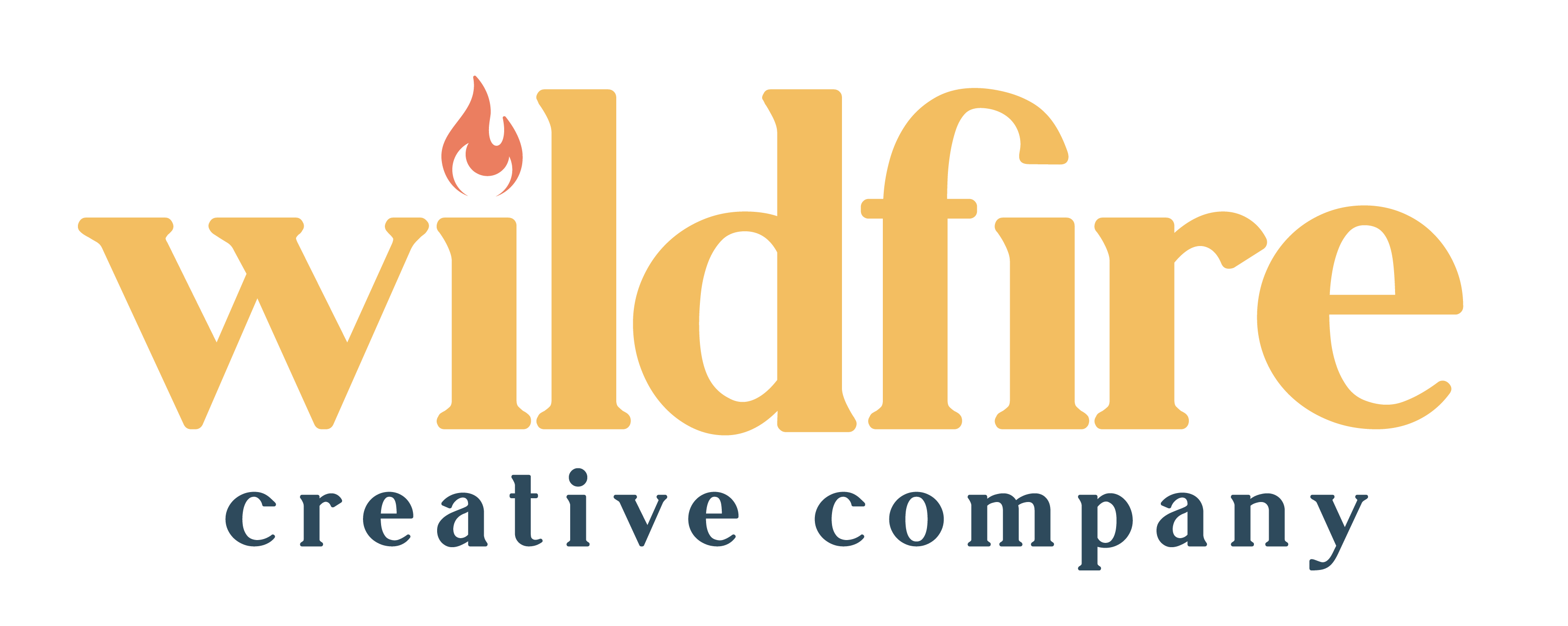How to Break Free from Imposter Syndrome

As an Amazon Associate, I earn from qualifying purchases.
Have you ever felt like you’re just winging it, worried that someone might call you out for not knowing what you’re doing, or felt like you’re not as capable as you may seem to others?
As Christian women, many of us struggle with feelings of not measuring up or fearing we’re not good enough. We’ve been there, too. While we may feel that way at times, the truth is that each of us has something uniquely valuable to share, and our voices and stories deserve to be heard.
At Wildfire Creative, we see many of our coaching and podcasting clients struggling with imposter syndrome, so we know it’s a big issue, and we want to help you get past it!
So, what is imposter syndrome, anyway?
Imposter syndrome is a psychological phenomenon where you constantly doubt yourself, feel inadequate, and fear that others will see you as a fraud (or an imposter, if you will). You might think your successes are due to luck or some external factor rather than your own abilities and hard work.
People dealing with imposter syndrome doubt their skills, compare themselves to others, and fear being exposed as undeserving of their accomplishments.
Imposter syndrome can take on many different forms, and it can lead us to take on mindsets that hurt our confidence and don’t help us grow.
What does imposter syndrome sound like?
“I’m not good enough.” This is a mindset our team often hears from our podcasting clients. They worry their content isn’t valuable or their audience will lose interest because they don’t have much to say, but that’s simply not true.
Even if someone is talking about the same topic, you will have a completely different angle because you are the only one who has had your life experiences. Each of our unique perspectives makes our content valuable and interesting to others.
“I don’t know enough.” We often feel like we aren’t “real experts” if we don’t have all the answers or if we make mistakes, but the reality is that, no matter how much of an expert someone may be, no one knows everything. It is okay to say, “I don’t know,” if you don’t have an answer or “I messed up,” when you make a mistake. That’s how we learn and grow. (And it makes you relatable to your audience, who are also imperfect people!)
Many clients tell us they feel they’re not real experts because they lack degrees or certifications. Unless you’re testifying as a legal expert in a courtroom, you’re probably okay.
We can freely share valuable insights and advice with our audience in our niche. If you are a seasoned parent of a child who has autism with a podcast on parenting children with autism, friend, you are an expert. You don’t need to have a degree to make you an expert in that area.
If you have more knowledge on your topic than people who are just getting started, please don’t hesitate to share that knowledge with others!
“I got lucky.” We once had a client tell us she succeeded simply because she was in the right place at the right time. No way! She did the thing, worked hard, and earned every bit of her success.
Putting together a great show for your audience does not happen by accident, coincidence, or luck. It happens because a great podcaster (that’s you!) has put in the hard work to make it so. Don’t sell yourself short!
“I’m not as good as *fill in your favorite podcaster*” We tend to compare ourselves to others, thinking we’re not as good as other podcasters in our niche. It’s easy to fall into this trap, especially when we see polished productions and big audiences.
But remember: we all start small.
Do not compare your chapter one to somebody else’s chapter 13. It’s not fair, and it won’t get you anywhere. If you are just starting your show, don’t compare yourself to the others out there who have 250 episodes under their belt. They’ve learned a lot of lessons in those 250 episodes that they’ve implemented over time.
Do the right show for yourself and your audience, and focus on being the best podcaster that you can be.
“I’m a fraud.” Our team hears this mindset from clients who fear being a fraud, worried that someone will figure out they don’t know what they’re talking about. Unless you’re knowingly deceiving people, this couldn’t be further from the truth.
Our stories matter. Our stories help people, teach things, and break down walls. Our life experiences and our life lessons all deserve to be heard. You do know what you’ve been through, you do know what you’ve learned, and you do know how you hope to help others with what you know now. You can never be called a fraud for that.
“No one else feels this way.” Feeling alone in this struggle is all too common. It’s easy to think you’re the only one feeling this way, but everyone has their own battles. You’re not alone, and it’s not just you. We promise.
So, how do we overcome imposter syndrome?
Here are five strategies that we have discovered along the way:
- Embrace your uniqueness: Recognize what makes you, you. Your perspective, life experiences, and storytelling style have value. Your audience is looking for authenticity and connection and by being yourself, you’ll attract the right listeners who resonate with your message.
- Focus on your strengths: Instead of dwelling on weaknesses, celebrate your accomplishments and recognize your progress. The one thing we’ve learned over time is this: building confidence starts with acknowledging and appreciating your abilities. It really is that simple.
- Learn from feedback: Whether positive or more constructive, feedback is a powerful tool for growth. Ask for feedback from your listeners, peers, and mentors, and embrace it. Don’t be afraid of it. Use feedback as an opportunity to refine your skills, grow, and become a better podcaster.
- Practice self-compassion: Give yourself some grace and treat yourself with kindness and understanding, as everybody has moments of self-doubt. It’s okay sometimes to feel uncertain of where you’re headed, or what you’re doing, or if you’re making the right decision. One thing we say to clients all the time is to treat yourself as you would treat your best friend facing similar doubts. Would you tell your bestie the things that you’re telling yourself? For most of us, the answer is no. You would support them, make them feel seen, point out their strengths, and remind them of why they started in the first place. Do the same thing for yourself as well.
- Find your tribe: Having a supportive community is so important! Connect with other podcasters who understand the challenges of this creative journey that we’re on. By surrounding yourself with like-minded people, you will gain support, encouragement, and the inspiration to keep pushing through the self-doubt, and in turn, you can give that to others.
Podcasting is about growth, learning, and sharing your unique voice with the world. Identifying which imposter syndrome mindset you are dealing with and implementing these five strategies can help you find freedom from imposter syndrome once and for all!
Friend, YOU are capable, talented, and deserving of success as a podcaster. We know you can do this! Don’t let imposter syndrome stop you from doing what you have been called to do. Your voice matters, and your story deserves to be heard.
All of us at Wildfire Creative are passionate about helping podcasters tell their stories and develop strategies to spread their message like wildfire. Do you have a question or need guidance in finding freedom from imposter syndrome? Schedule a call, and let’s chat!
Amazon and the Amazon logo are trademarks of Amazon.com, Inc, or its affiliates.
